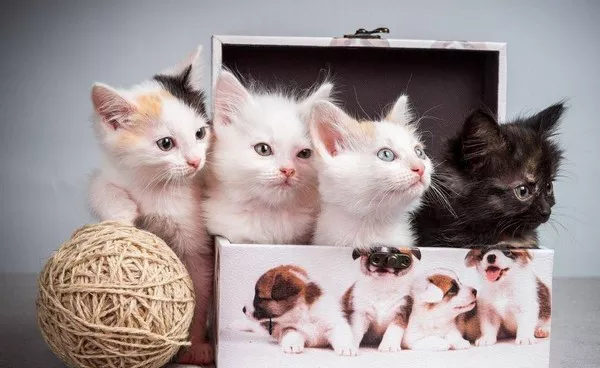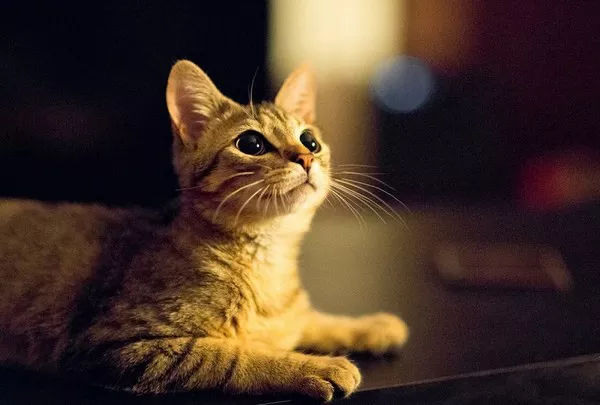Calico cats, with their distinctive tri-colored coats and unique personalities, are beloved companions in many households. As pet owners, we often seek to provide the best care for our feline friends, including ensuring they have a balanced and nutritious diet. While commercial cat food is readily available and formulated to meet their dietary needs, many pet owners wonder about incorporating human foods into their cat’s diet.
In this comprehensive guide, we will explore the world of human foods that are safe for Calico cats to consume, as well as those that should be avoided. Understanding what human foods are suitable for your feline friend can enhance their diet and provide them with variety and enrichment.
Understanding Your Calico Cat’s Nutritional Needs
Before delving into the realm of human foods, it’s essential to understand the nutritional requirements of Calico cats. Like all cats, Calicos are obligate carnivores, which means their diet should primarily consist of animal-based protein. Their nutritional needs include protein, fat, essential fatty acids, vitamins, and minerals.
Protein is crucial for muscle maintenance and overall health, while fat provides a concentrated source of energy. Essential fatty acids, such as omega-3 and omega-6, support skin and coat health, immune function, and inflammation regulation. Additionally, vitamins and minerals play vital roles in various physiological processes, including bone health, vision, and immune function.
Safe Human Foods for Calico Cats
While commercial cat food is formulated to meet feline nutritional needs, many human foods can serve as healthy additions to your Calico cat‘s diet. When introducing human foods, it’s essential to do so in moderation and ensure they complement rather than replace their regular cat food. Here are some safe human foods for Calico cats:
Cooked Meat: Lean cooked meats, such as chicken, turkey, and beef, are excellent sources of animal-based protein for Calico cats. Remove any bones, skin, and excess fat before offering it to your cat. Avoid seasoned or processed meats, as they may contain ingredients that are harmful to cats, such as onion and garlic.
Fish: Fish, such as salmon and tuna, can be a tasty and nutritious treat for Calico cats. However, it’s essential to offer fish in moderation, as excessive consumption can lead to nutritional imbalances and potential exposure to mercury. Additionally, always ensure the fish is cooked and free of bones.
Eggs: Eggs are a fantastic source of high-quality protein for Calico cats. Offer cooked eggs as an occasional treat, making sure they are fully cooked to avoid the risk of salmonella. You can scramble or hard-boil the eggs and offer them plain, without any added salt or seasoning.
Cooked Vegetables: Certain cooked vegetables can be beneficial additions to your Calico cat’s diet, providing fiber, vitamins, and minerals. Suitable options include cooked carrots, peas, and green beans. Ensure the vegetables are cooked thoroughly to make them easier for your cat to digest.
Fruits: Some fruits can be safe for Calico cats in small amounts. Offer fruits such as bananas, apples (without seeds), and berries as occasional treats. Remember to remove any seeds or pits, as they can be toxic to cats.
Plain Yogurt: Plain yogurt can be a source of probiotics, which promote digestive health in cats. Offer small amounts of plain, unsweetened yogurt as an occasional treat. Avoid flavored yogurts, as they often contain added sugars that are not suitable for cats.
Cooked Rice or Pasta: Plain, cooked rice or pasta can be a bland and easily digestible option for cats experiencing digestive upset. Offer small amounts as a temporary solution, but ensure they are not a significant portion of your cat’s diet.
Foods to Avoid
While many human foods are safe for Calico cats to consume, there are several items to avoid due to their potential to cause harm or toxicity. Be mindful of the following foods and substances:
Onion and Garlic: These ingredients, whether raw, cooked, or powdered, contain compounds that can cause damage to a cat’s red blood cells, leading to anemia. Avoid feeding any foods containing onion or garlic, including soups, sauces, and seasonings.
Grapes and Raisins: Grapes and raisins can cause kidney failure in cats, even in small amounts. Avoid offering these fruits as treats or snacks.
Chocolate: Chocolate contains theobromine and caffeine, which are toxic to cats and can cause symptoms such as vomiting, diarrhea, tremors, and seizures. Keep all chocolate products out of reach of your Calico cat.
Alcohol: Alcohol consumption can lead to alcohol poisoning in cats, resulting in symptoms such as vomiting, disorientation, difficulty breathing, and even coma. Ensure all alcoholic beverages are securely stored away from your cat.
Xylitol: Xylitol is a sugar substitute found in many sugar-free products, including gum, candy, and baked goods. Ingestion of xylitol can cause a rapid release of insulin in cats, leading to hypoglycemia (low blood sugar) and potentially liver failure. Keep all xylitol-containing products out of reach of your Calico cat.
Bones: While cats are carnivores and may enjoy chewing on bones, they pose a choking hazard and can splinter, causing injury to the digestive tract. Always remove bones from cooked meat before offering it to your cat.
Introducing Human Foods Safely
When introducing human foods to your Calico cat’s diet, it’s essential to do so gradually and in moderation. Start by offering small amounts of the new food as a treat or topping on their regular cat food. Monitor your cat’s response for any signs of digestive upset or adverse reactions.
Additionally, consider consulting with your veterinarian before making any significant changes to your Calico cat’s diet. They can provide guidance tailored to your cat’s specific nutritional needs and any health concerns they may have.
Conclusion
Incorporating safe human foods into your Calico cat’s diet can add variety and enrichment to their meals while providing additional nutritional benefits. By understanding which human foods are safe and suitable for cats and which ones to avoid, you can ensure your feline companion enjoys a balanced and healthy diet.
Remember to introduce new foods gradually and in moderation, and always monitor your cat’s response for any signs of digestive upset or adverse reactions. When in doubt, consult with your veterinarian for personalized advice and guidance on feeding your Calico cat the best diet possible. With proper care and attention to their nutritional needs, your Calico cat can thrive on a diet that includes a variety of safe and nutritious human foods.
Related Topics:

























